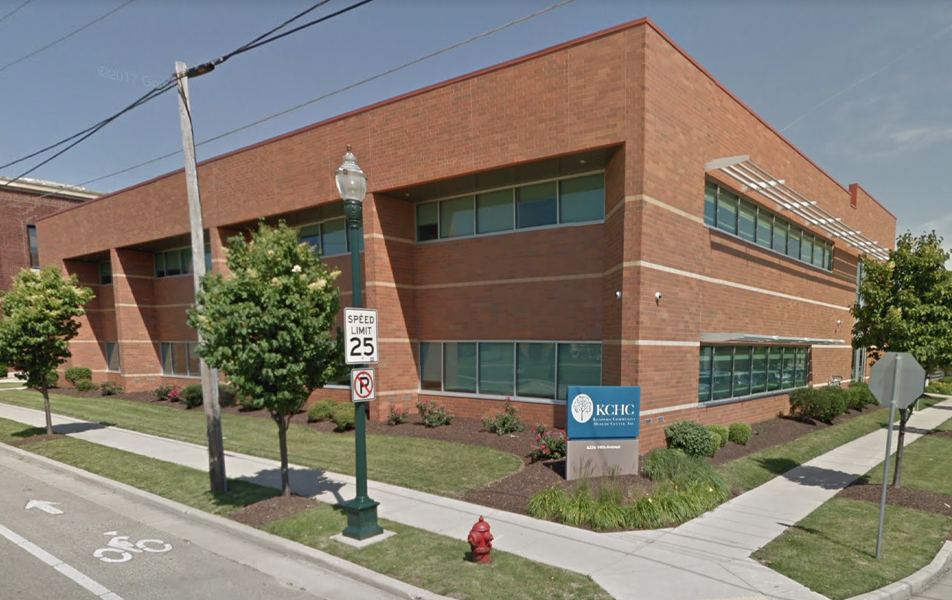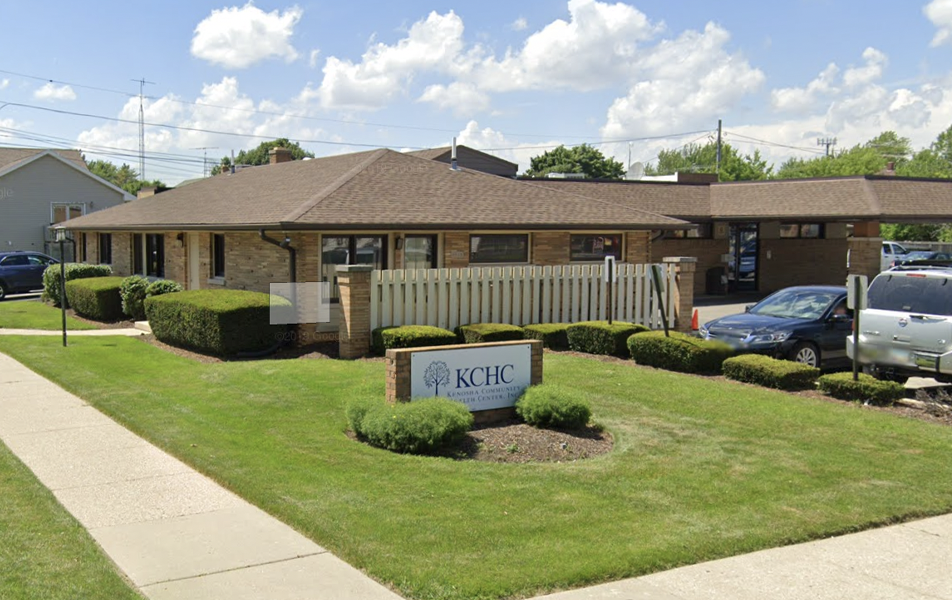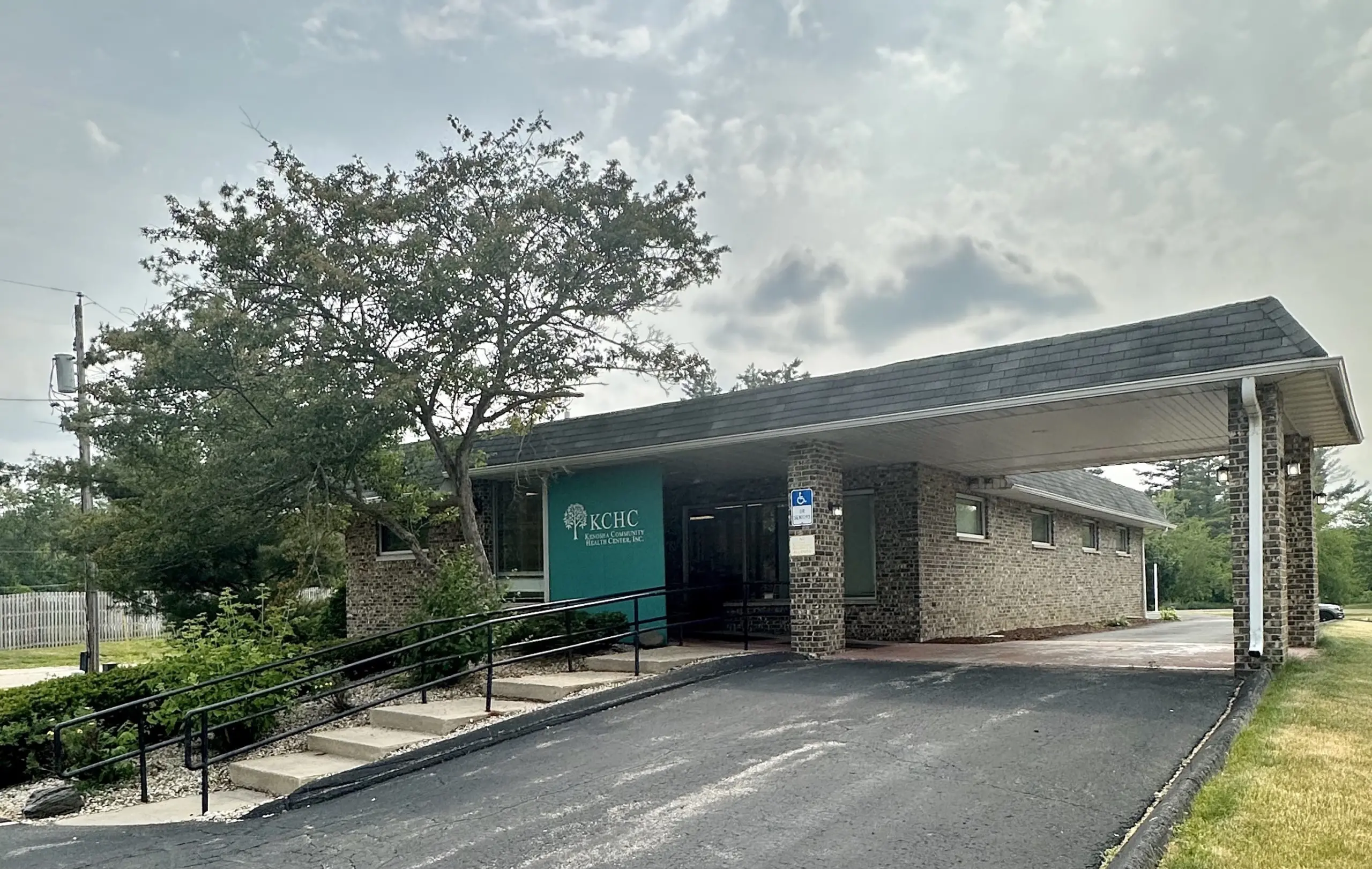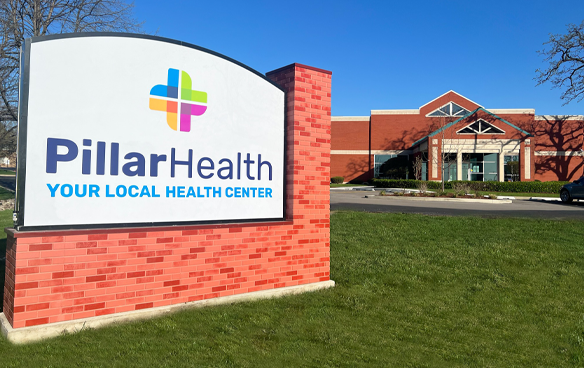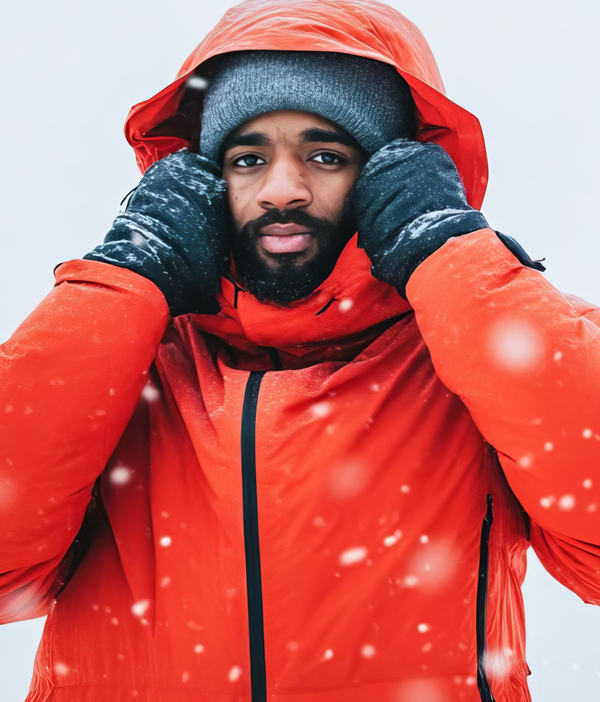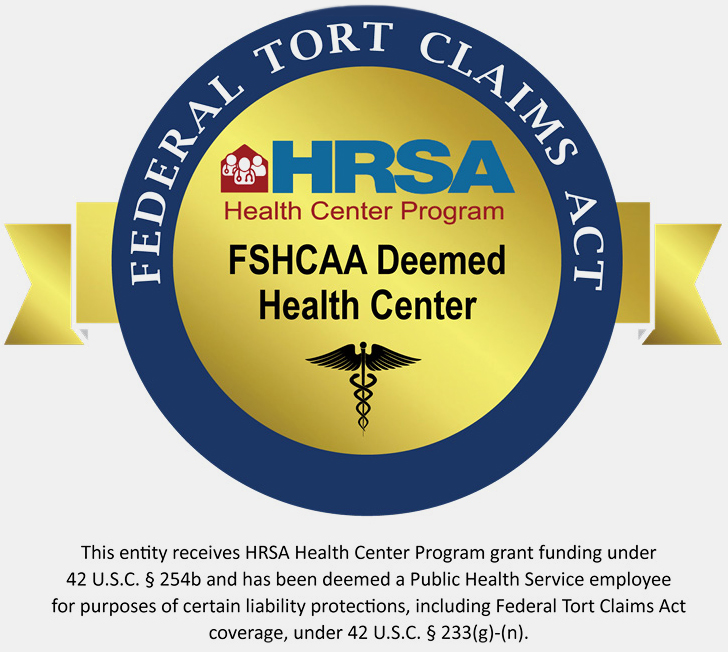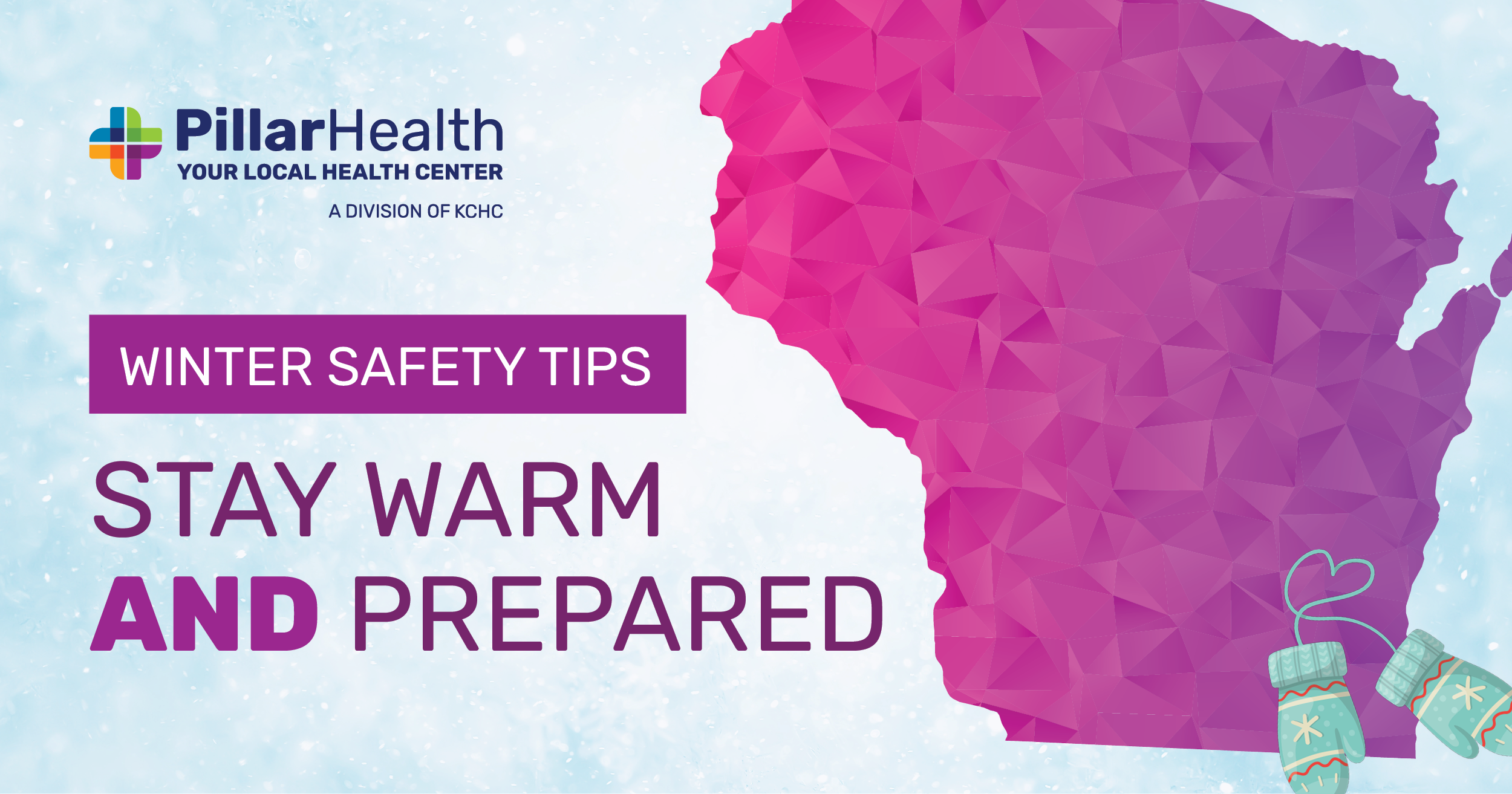
Stay Safe and Warm This Winter in Southeastern Wisconsin
As winter settles into Kenosha, Racine, and Walworth Counties, it’s time to prepare for the snow and cold temperatures that are a hallmark of Southeastern Wisconsin. Pillar Health and the Kenosha Community Health Center have put together some essential tips to help you and your loved ones stay safe, warm, and healthy during the winter months.
1. Stay Informed with Weather Updates
Keep an eye on the forecast by checking reliable sources like Fox 6 Now or your favorite weather app. Knowing what to expect will help you plan ahead and avoid getting caught in severe conditions.
2. Adjust Your Routine
Winter mornings are often the coldest. If possible, adjust outdoor activities to avoid these frigid hours. For children waiting for the bus, ensure they have a warm place to stay until the bus arrives.
3. Protect Pets, Livestock, and Your Home
- Pets and Animals: Make sure your pets and farm animals have shelter, enough food, and access to unfrozen water.
- Your Home: Prevent frozen pipes by insulating exposed water pipes, keeping under-sink cabinet doors open, and in extreme conditions keeping a trickle of water running.
4. Winter-Proof Your Vehicle
Keep your gas tank at least half full to avoid freezing fuel lines and to ensure you can stay warm in case of an emergency. Always check that your car is winter-ready with items like an ice scraper, jumper cables, and emergency supplies (see the “Car Survival Kit” section below).
5. Dress in Layers
Layering is your best defense against the cold.
- Start with a moisture-wicking base layer (wool or synthetic fabrics).
- Add an insulating layer, like fleece or down, for warmth.
- Top it off with a waterproof and windproof outer layer.
For Kids: Make sure they wear thick socks, waterproof boots, mittens (easier than gloves), and a snug hat. When using car seats, avoid thick jackets; opt for thin layers and blankets over the seatbelt for safety.
6. Prepare Your Home for Winter
- Ensure your home is well-insulated and seal any drafts.
- Create an emergency kit with non-perishable food, water, warm clothes, blankets, and a first aid kit.
- In case of power outages, have safe heating options like a fireplace. If using portable heaters, crack a window slightly to prevent carbon monoxide buildup. Position space heaters away from combustible materials.
7. Check on Your Neighbors
Keep an eye out for older adults, individuals with disabilities, or anyone who might be alone during the winter. Being a supportive friend or neighbor can make a big difference.
8. Learn the Signs of Frostbite and Hypothermia
- Frostbite: Numbness, tingling, or white/grayish-yellow skin.
- Hypothermia: Shivering, confusion, slurred speech, and drowsiness.
If you notice these symptoms, seek medical help immediately.
9. Stay Hydrated and Healthy
Even in cold weather, dehydration is possible. Drink plenty of water and eat nutrient-rich foods to keep your energy up.
10. Keep a Car Survival Kit
Be prepared for emergencies with these items:
- Jumper cables and flashlight
- First aid kit and non-perishable food
- Water and pet supplies (if traveling with pets)
- Basic toolkit, ice scraper, and shovel
- Cat litter or sand for traction
- Extra clothes, hand warmers, blankets, or sleeping bags
- A charged cell phone and a portable charger
Do not wait to schedule your appointment.
Kenosha Community Health Center has many appointment options in Kenosha and Silver Lake to meet your needs.
Schedule An Appointment

